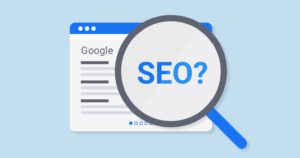Marketing has changed rapidly over the past few decades. With the advent of the internet, brands have begun to focus less on traditional forms of marketing and more on digital marketing. This has created new job roles and career possibilities. SEO is an integral part of digital marketing and involves many aspects. Here we’ll take a look at some of the most important factors.
One of the most important elements of SEO is content. It is the primary means of acquiring links, driving traffic, and engaging users. It can take many forms. Some of these forms are listed below. Content marketing has a long history and continues to grow as the internet grows. Here are a few ways to optimize your content.
The content you create should be actionable. It should answer the searcher’s question and offer the next step. It should also be targeted to your audience. This is crucial as it will impact nearly every aspect of your marketing strategy. Choosing the right audience can help you optimize your content for search engines and improve your search rankings.
The most basic SEO principle is to write quality, relevant content. This is essential because, without content, a site cannot rank. Therefore, content must be structured in a way that is easily read by Google’s algorithm. Keyword research is essential to creating content that answers search queries. In addition to the search engine benefits, keyword research can help your site get better rankings for the queries it answers.
Content is a core component of SEO, but there are many other components that play a role as well. Off-page optimization includes social engagement, citations, and links from other websites. It also includes a company’s domain authority and trustworthiness. Technical SEO, on the other hand, deals with all the behind-the-scenes work. It deals with HTTP, source code, page speed, and more.
While content is a core component of SEO, there are different types of content. Some content is not relevant to the audience. Some content is too stuffed with keywords and is uninformative. Good content has a message that resonates with your audience and attracts new users. It should also be accurate and provide a good home for backlinks. It is essential to write good content in order to boost your ranking.
Header tags are one of the most important aspects of SEO. These tags allow Google to understand more about the content of a page. Make sure your header tags include relevant keywords, too. This will help your website rank higher in search engine results. However, you must also make sure that your header tags are SEO-friendly and easy to read.
In addition to helping with SEO, headers improve on-page user experience. When a user arrives at a website, they often skim through the page’s content in order to determine if it’s relevant to their needs. Headings help break up long pages and give them structure.
In addition to providing context to the content, headers help to break the text into chapters. Having a well-structured article with a good hierarchy of headers also makes articles more readable. Since most people simply scan content, you’ll want to keep the number of headers consistent across pages.
While H1 tags are the most important, other heading tags are less important. H2 and H3 tags can help you rank higher, but only if you use them properly. Adding multiple H1s to your website can confuse readers. Using multiple H1s can also confuse search engines. As a result, it’s important to brainstorm and choose the most eye-catching title for your article.
While header tags can be used to help Google better understand the structure of a page’s content, they are also crucial for the user experience. If the header tags are informative and helpful, users will be more likely to stay on your page and read the rest of the content. When used correctly, header tags can increase a website’s SEO and increase traffic.
Header tags are one of the most important factors in SEO. They will influence the positioning of a page by hundreds of percent. Header tags are categorized in a hierarchy of H1 to H6. H1 is the most important heading, while H6 is the least.
Header tags should be optimized for all major search engines. This is because it makes the web pages look more appealing to the readers. Adding headers makes reading the content easier. Header tags are also an important factor in displaying meta-data.
